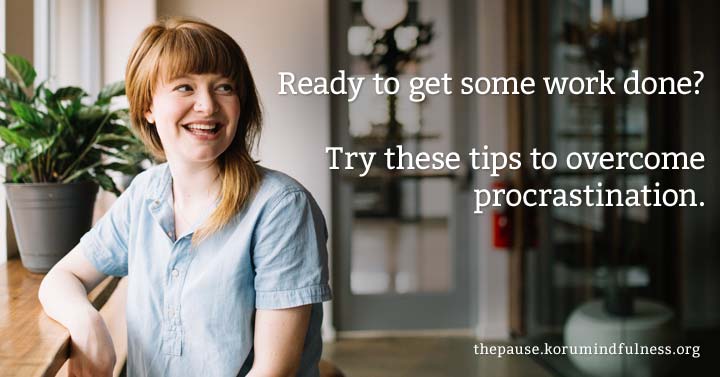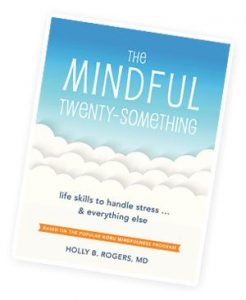
Do you ever have a hard time getting started with a project? Do you ever find that the dread of getting started leads to procrastination until the last minute, leaving you stressed out and sleep deprived as you finish your work?
Welcome to the club. Most all of us are susceptible to procrastination.
Recently, I was chatting with a friend and we were talking about the tricks we use to push through procrastination.
I shared that another friend of mine had taught me to work in “units.” And that I use units of work to get started and efficiently get my big projects done.
Ready to take your meditation practice to the next level?
Join us as we partner with iBme for a Spring Break Meditation Retreat!
Here’s how it works:
A unit of work is 45 minutes.
An hour is too long; it feels daunting which can make me delay getting started. Thirty minutes may not be enough time to get my creative juices flowing. Forty-five minutes is just right: it’s not an overwhelming amount of time but it’s enough time to get some real work done.
Schedule your units
Each day I decide how many units I plan to get through and when I will do them. Even on a fairly busy day, I can usually do 1 unit. On days with more time to devote to projects, I can plan for 3 or 4 or 5 units.
Off days
And of course, some days are days off: no units on those days. Days off are to be spent mindfully enjoying myself, not feeling guilty that I am not getting my work done.
Get started
When it’s time to do a unit, I find a comfy place to sit or stand, and set my timer for 45 minutes. If I don’t really feel like doing it, I just tell myself, “It’s no big deal. Just 45 minutes. I’ll do something relaxing when I’m done.” And I get started. I’ve learned I don’t have to wait until I feel like getting started. I just notice that feeling of “not wanting to work,” and then with a bit of compassion for the feeling, I get started. It usually goes away once I am working.
Sometimes the 45 minutes drag by. I’m struggling with my writing, I can’t get my thoughts together, and nothing creative emerges. I feel relief when the timer goes off. It’s not a problem, though. It is still time spent with my brain working on the problem. The solution will emerge in the next unit if it doesn’t emerge in this one.
Sometimes the 45 minutes fly by. The timer goes off and I am in the middle of a creative burst, and I just roll on, working until I come to a natural break.
Focus
Here’s where the mindfulness comes in: During the unit of work, I focus as best I can on the work in front of me. I remove distractions by turning off email and messaging and all beeps and buzzes. I let go as best I can of doubts and worries and self-criticism, which are all drains on working-memory and creativity. My attention is on the task of the moment, opening myself up to whatever fresh ideas emerge.
When 45 minutes is over, unless I’m in the middle of a creative burst, I’m done. If I plan to do more units, I take a break of 10-15 minutes before starting the next unit.
During the break, mindfulness is also important.
It’s time to check in with my body and mind to discover what would be the most helpful use of my break. Usually, I want to give my brain a break and move my body around. Do I need a snack or a cup of tea? Or to stretch and take a quick walk? Do I want to answer a few emails or do a mindless chore like washing dishes or folding laundry? Usually, I set a timer to let me know when my break is over, and then I move on to the next unit.
The beauty of this strategy is that it eliminates the struggle and also helps build your mindfulness muscle. Most of us can delay gratification for 45 minutes to get a bit of work done. If you can’t, it may mean you are worn out, and truly need to get some rest. See what your body and mind are telling you about your energy, and make adjustments as needed.
Remember, self-criticism is not your friend.
Self-criticism doesn’t help at all. If you notice it, shift your attention to the present moment by taking a nice, slow mindful breath. Then focus on the task at hand.
After our chat, my friend tried using “units” to get her work done and found it helpful. She even put sticky notes on her computer reminding her how many units she had left to do for the day.
If you try this strategy for getting past procrastination, we’d love to hear how it goes. Or, if you have other strategies that work for you, we’d love to hear them. Please share your thoughts below !
Photo by Brooke Cagle on Unsplash
Get our latest articles in your inbox.
